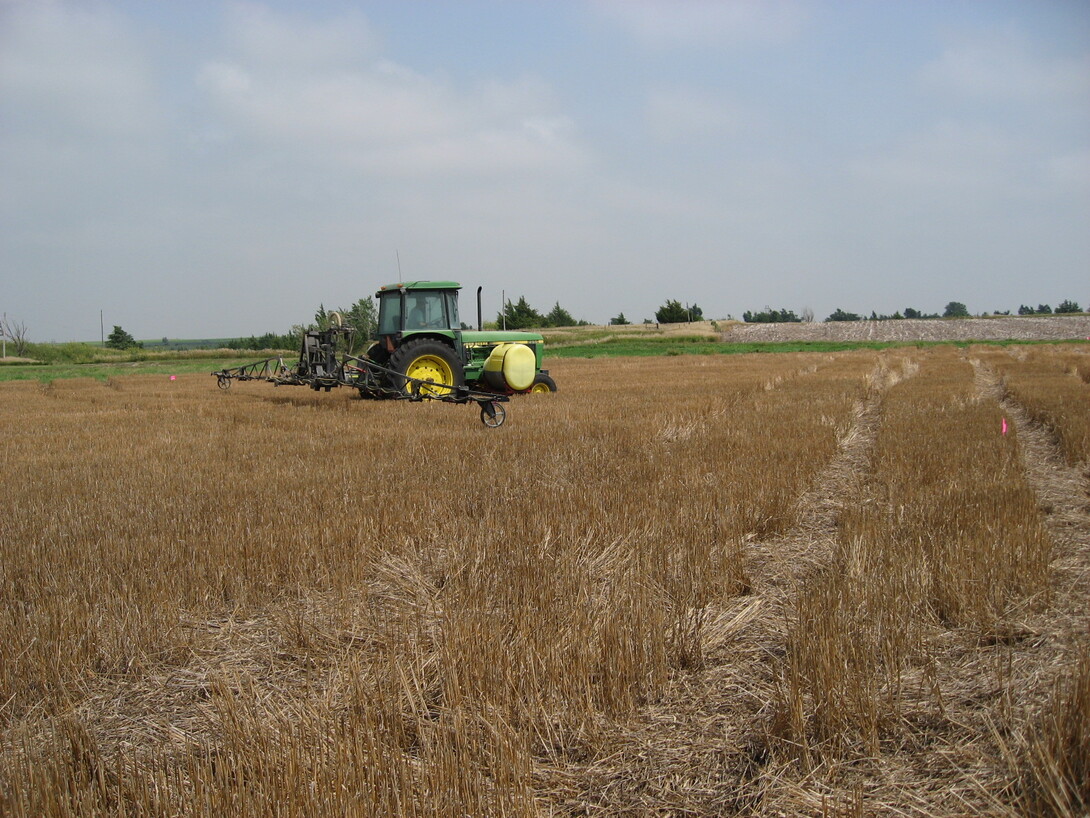
December 20, 2018
Lincoln, Neb. — About 6,500 private applicators of restricted-use pesticides will have their state licenses expire in 2019. For them, or for anyone seeking first-time private applicator certification, Nebraska Extension training is available in one of about 200 sessions from January through April.
In addition to the traditional sessions, a newly revamped, more user-friendly online private self-study training is available from the Pesticide Safety Education Program at the University of Nebraska–Lincoln. For more information, visit https://cropwatch.unl.edu/2018/online-rup-private-applicator-training-revamped.
Every three years, a private applicator must attend a training session or self-study course approved by the Nebraska Department of Agriculture or pass an NDA exam for license renewal. Once licensed, applicators may purchase, handle or apply restricted-use pesticides. Fees are separate for extension training and Nebraska Department of Agriculture licensing.
In addition, separate annual extension training sessions will be held for the dicamba products XtendiMax, FeXapan and Engenia. Completing state-authorized training prior to using these products is a federal requirement, due to the potential for drift and damage to nontarget crops. As information is updated, it will be listed at https://pested.unl.edu/dicamba. The three products have been classified as restricted-use pesticides since 2017. This fall, the Environmental Protection Agency extended registration for the three products through Dec. 20, 2020.
Following the label instructions for safety and to prevent damage from herbicides is increasingly important, said Clyde Ogg, Nebraska Extension educator and Pesticide Safety Education Program coordinator.
"The burden is on the applicator to investigate, read, understand, go to training programs and know what you're doing before you ever even set foot in the field," Ogg said. "You are responsible if that product moves off your property and damages your neighbor's crops or plants."
The Pesticide Safety Education Program, in conjunction with the Nebraska Department of Agriculture, updates training and educational materials in light of changing products, equipment, research, and federal and state regulations. New pesticide label requirements, for example, help protect endangered species habitat, as well as help thwart weed resistance and off-target movement of pesticides. Labels are becoming increasingly lengthy and more specific in instructions, Ogg said, but must be followed.
"The label is the law," he said, adding that each label, even of the same product, must be read and followed because of potential variations.
Other Pesticide Safety Education Program training topics for 2019 include protecting pollinators, updates on glyphosate and paraquat, avoiding temperature inversions, calibrating and cleaning out sprayer equipment, correct use of nozzles and other application equipment, and integrated pest management, in addition to laws and regulations.
Participants will again use the updated EC130 Guide for Weed, Disease and Insect Management in Nebraska to learn how to use label information, such as chemical group numbers as well as nonchemical techniques, to reduce development of pesticide-resistant pests. The comprehensive guide, normally $15, is included with registraton.
Applicators to be recertified in 2019 will be notified in two ways: by mail through the Nebraska Department of Agriculture and through local extension offices.
Private applicators needing recertification should expect a Nebraska Department of Agriculture notification letter by mid-December. The letter includes a bar code that eliminates the need to complete the standard application form. Applicators also should check their licenses for the expiration date. If it expires in 2019 and they have not yet received a letter from the Nebraska Department of Agriculture, they should contact the agency at 402-471-2351 or 877-800-4080.
The cost of extension's private session training is $40; Nebraska Department of Agriculture licensing for private applicators is a separate $25.
Detailed information is available at http://pested.unl.edu or through the following direct links. Pre-registration is encouraged by contacting extension offices. Dates may still be added in late December.
For private initial, or first-time, certification training locations, dates and contacts, visit https://edmedia.wufoo.com/reports/2019-psep-private-training-dates. Extension training is $40.
- For private recertification training locations and dates, visit https://edmedia.wufoo.com/reports/2019-psep-private-training-dates. Extension training is $40.
- For the revamped and improved private online self-study training, visit https://psep.education/applicator. Extension training is $75.
- Applicators with both private and commercial/noncommercial licenses may find extension's Crop Production Clinics helpful. For more information, visit https://agronomy.unl.edu/cpc. The cost is $80.
Another option of becoming certified or recertified is by completing a self-study course with printed materials, available at extension offices. This is the last year for this option, which is $60.
In case of inclement weather and possible cancellations for extension training sessions, listen to a local radio or television station, or call the training site.
For more information about pesticide safety, visit http://pested.unl.edu.
Clyde Ogg
Pesticide Safety Education Program Educator
402-472-1632
cogg1@unl.edu







